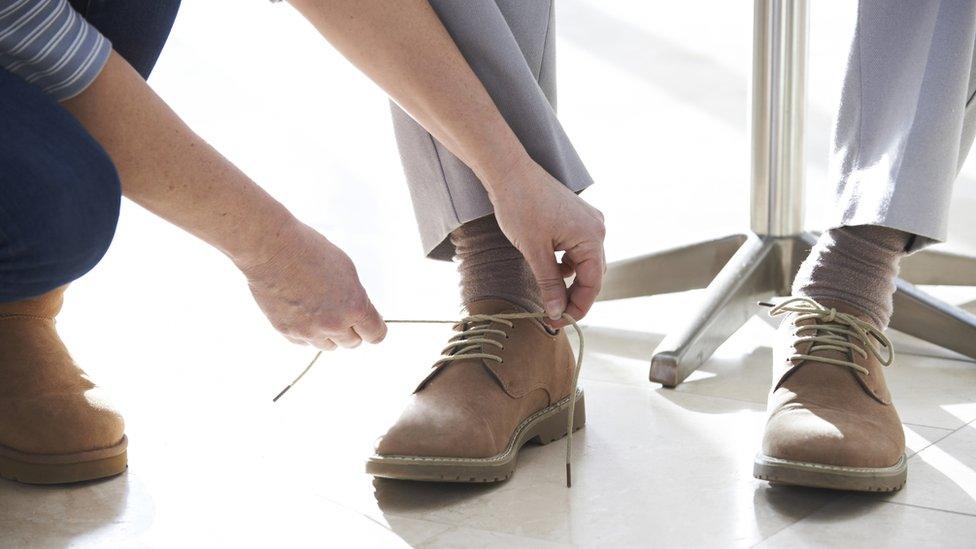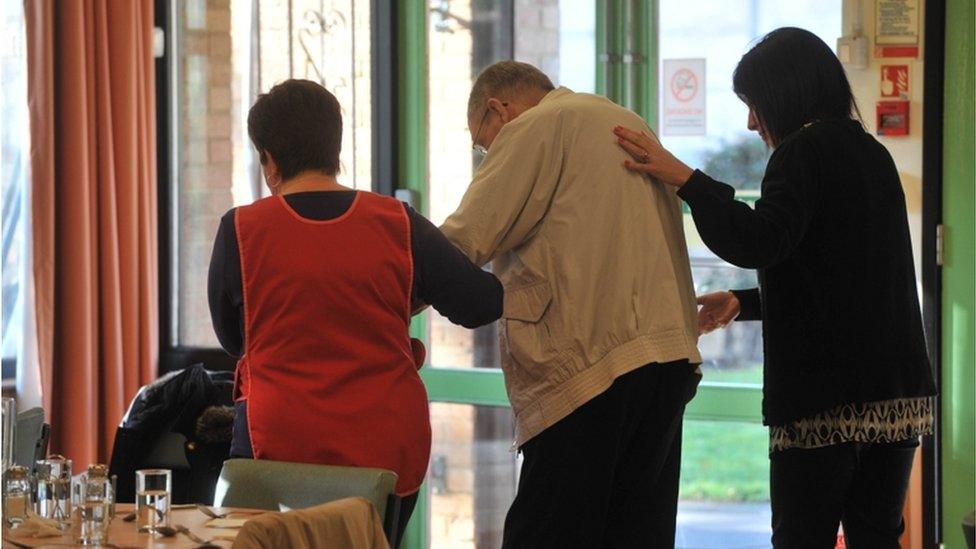People using care services in Gwynedd set for fresh charges
- Published

People who use care services in their homes across Gwynedd could face fresh charges from April.
Council leaders have been asked to agree a new charging structure for social care services in the county, in a bid to ease budget burdens.
An analysis shows about 40% of those using services, such as help to dress and clean, could be affected.
However, the council stresses no-one will be charged more than a £60 weekly cap set by the Welsh Government.
A report to the council's cabinet, external will be considered at a meeting on Tuesday in Caernarfon.
It warns that failing to implement new charges will mean money must come from other parts of the council budget.
"If members do not approve the charging policy, then it would be necessary to offer alternative savings in its place which could lead to an adverse impact on some services for the citizens of Gwynedd," stated one council officer in the report.
Charging 'justified'
Under the plans, anyone receiving more than a set minimum income will have to pay charges on a sliding scale, up to the £60 a week limit.
It means any retired or out-of-work resident in Gwynedd using non-residential care services with a weekly income above £226 will have to pay.
For those in work, the minimum income before charges is lower, at £148 a week.
According to the council, it could mean someone earning about £269 a week and working would see a bill for care charges rise from £16 a week to £43 - an extra £1,400 a year - an increase of 168%.
"Clearly, as a result there will be a significant impact especially in some cases," accepted the council's chief executive, Dilwyn Williams.
"However, the wider context for all this is that the council cannot maintain its services without a robust charging regime that can be adequately defended and justified. Clearly, these proposals seek to do so."
The report stresses that the changes have been part of widespread consultation across the county, with over 500 responses on the matter.
It states that 58% of those who took part "agreed that those who could afford to pay for adults care service should contribute to the cost of their social care".
- Published8 January 2017

- Published10 November 2016

- Published12 November 2015
